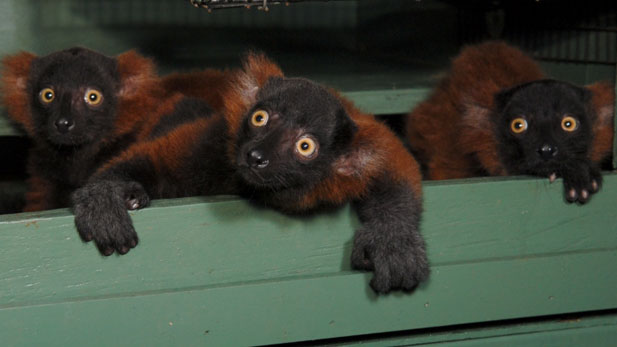 Newly born red-ruffed lemurs.
Newly born red-ruffed lemurs. PBS
Viewers are taken into high-security, high-tech labs where scientists attempt to breed new generations and into the field to discover what forces have led to the demise of entire species. Featured animals include Yangtze turtles under 24-hour surveillance; a baby Sumatran rhino; a special collection of lemurs; the Spix's macaw, a bird declared extinct in the wild in 2000; and "Lonesome George," a giant tortoise from the Galapagos, who is the last of his kind.
Nature: The Loneliest Animals, Wednesday at 8 p.m. on PBS 6.


By submitting your comments, you hereby give AZPM the right to post your comments and potentially use them in any other form of media operated by this institution.